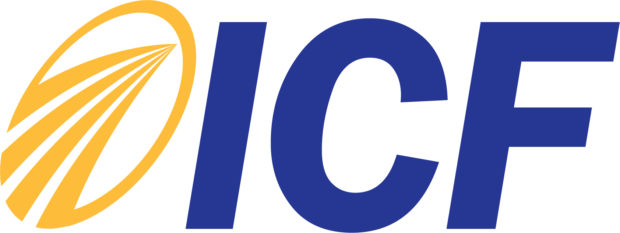Competencies and Credentials: What does it take to be a coach?
So, you want to be a Coach. You sincerely like helping people. You have this amazing way with words. Your friends seek you out for advice whenever they find themselves grappling with heartbreak, or a tough decision, or a plan gone awry, or even just a nagging feeling that something’s not quite right with their world.
And you love these chats. Telling your friends what you think they should do, gives you a high. Then one day, you hear you can turn these conversations into a real career called Coaching, one that pays well and has nothing to do with basketball. How do you go pro?
“The first step to going professional,” says Julius Ordonez, the first and only Filipino to hold the credential of Master Certified Coach today, “is to be very clear about what Coaching is, exactly. It is not about offering advice or fixing anyone’s problems. That is a very risky place to begin your journey as a Coach. You need to start right, and ICF Philippines can show you how.”
Ordonez got his certification from the International Coach Federation (ICF), a US-based organization of some 27,000 professional Coaches, with presence in over a hundred countries worldwide, including the Philippines. ICF defines Coaching as “partnering with clients in a thought-provoking and creative process that inspires them to maximize their personal and professional potential.”
“We recognize the client as the expert in his or her own life,” Ordonez explains. “We proceed from the belief that every client is creative, resourceful and whole.” On this premise, the responsibility of the Coach is not to prescribe, but to discover, clarify and align with what the Client wants to accomplish. He encourages the client on a path of self-discovery, draws out solutions and strategies from the client himself, and holds him responsible for his own outcomes. Done well, the results are almost always empowering. The client finds himself in a new zone of self-awareness and self-worth that pushes his confidence in his own abilities, to remarkably higher levels. “This is how a Coach makes a difference in the lives of people,” Ordonez muses.
Coaching is both science and art, he points out. “There are concepts, skills, and frameworks you need to learn, to be able to coach effectively. You can strive to grow more intuitive as you go along, but you will see that this comes only with your mastery of the process. You cannot just wing your way around.”
The ICF is the best way to go for every aspiring coach, Ordonez states. “ICF is the gold standard. It has in place a Code of Ethics that sets the quality of practice for all its members. It is dedicated to advancing the coaching profession so it ultimately becomes a way of life for communities. And it provides the method, structure and support one needs to establish a professional coaching career.”
The ICF equips its members through various training programs and competency-building initiatives. Its progressive credentialing system employs a mix of evaluation measures including rigorous interviews, examinations and assessments. It lays down three tracks with corresponding requirements in terms of education and coaching practice. To apply for the Associate Certified Coach (ACC) credential, one must have completed at least 60 hours of training and a minimum of 100 hours of coaching practice. For the Professional Certified Coach (PCC) credential, one needs to have undergone at least 125 hours of training, and 500 hours of actual coaching practice. For the Master Certified Coach (MCC) level, one is required to have finished at least 200 hours of training, and 2,500 hours in coaching practice. And only ICF-approved or accredited training programs may be counted valid in any of these levels.
Coaches who have earned their ICF credentials become part of an elite and self-regulating corps, serving as standard-bearers of the coaching profession. These ICF credential-holders can wield significant influence in expanding and professionalizing the coaching practice in their respective parts of the world.
“That is, in fact, my personal advocacy,” Ordonez volunteers. He founded ICF Philippines in 2002 to raise public awareness and appreciation of the coaching profession, and especially to open doors for aspiring coaches in the country.
Over a decade down the road, ICF Philippines has grown considerably, and Ordonez is proud of its current expansive orientation. “Its roster already holds a good number of ICF Credential-holders, led by its President, Ms. Alma Horn, an ACC,” he beams. “Membership is increasing, interactive learning is high, and the organization is into a lot of projects and activities like peer group coaching, providing credentialing support, conducting learning sessions, and even doing pro-bono coaching for special communities.”
ICF Philippines has also been actively involved in many international learning events. It hosted the first-ever International Coaching Summit in the Philippines in 2015, bringing together renowned coaching gurus and professional coaches from all over the world. In 2017, it supported the Asia Pacific Alliance of Coaches (APAC), then headed by its founder, Ordonez, by sending a delegation of almost 70 pax to its regional conference in Bangkok, Thailand.
Indeed, the continuing thrust of ICF Philippines is to bring international resources to the local coaching community. And on November 8 this year, it is hosting the biggest coaching and leadership event in South East Asia – the International Coaching Summit 2019 at the Conrad Hotel. Summit speakers include leading international figures in communication, coaching and leadership. For aspiring Coaches, Coaching Professionals, Corporate Leaders, Entrepreneurs, Consultants, and Educators, the event is expected to be a unique and exciting forum for knowledge sharing. To register and find out more about the Summit, visit icfphilippinescoachingsummit.com or call 8127177.
ADVT
